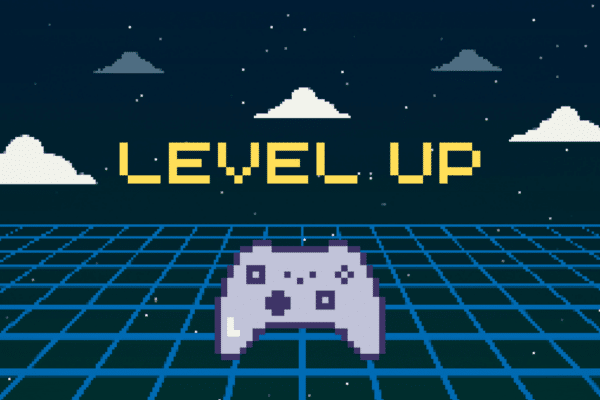We need to talk about our online selves
On the morning of July 19th, 1692, 71-year-old Rebecca Nurse was convicted and hanged in New Salem, Massachusetts. Her crime? Perhaps quarreling with a neighbor over some trespassing pigs a few years earlier was what triggered several accusations that followed. Being an active member of the community and being known for her good character didn’t save her from what would be known as one of the most senseless cases of hysteria among community members in history. And one might think that her trial and conviction were riddled with ignorance and superstition. On the contrary: in her article on the Washington Post blog, Stacy Schiff, the Pulitzer Prize-winning author of “The Witches: Suspicion, Betrayal, and Hysteria in 1692 Salem” says:
“The Bay Colony may have qualified as the best-educated community in the history of the world in 1692. Piety correlated with literacy; rarely had so many been able to read. The majority of the adolescent girls in Salem village could read, even if they could not sign their names. Erudition and piety played greater roles in the crisis than did ignorance and superstition.”
Despite that, all it took for someone to be accused of witchcraft was a watchful neighbor — or even a spouse and the community members, who were always on the lookout for someone to blame for bad rye crops or a draught. Of course, there were always those who fueled the frenzy by pointing the finger of blame. This resulted in about 140 people arrested and charged with witchcraft. Among them were men, women, and children.
In today’s world, at least in my context, nobody is arrested or publicly executed for something as silly as having more than a female friend or for displaying stubborn behavior. We don’t peek through window blinds to monitor our neighbors. However, in social media, it seems we are going backwards in history because everybody seems to be keeping a watchful eye on everybody.
Yet, our online lives represent just a tiny little part of our real lives. And what’s even stranger: Our digital selves and our real selves don’t exist separately, but what we choose to post online reflects the person we would like to be. We put on an ideal version of ourselves just like we do when we go to a party or to a job interview. We pick our best outfits and we behave accordingly. Who are we in this paradox?
For McAdams (2001), one’s identity is not formed until one’s early adulthood. At its core, identity is one’s awareness of oneself arranged synchronically and diachronically, that is, ‘who I have been,’ and ‘who I could be.’ When one’s past is linked to one’s present and future, a storied self is born. Within our storied selves, many selves live together. So, in my case, my self-as-the-English-teacher, my self-as-member-of-a-social-media-community, among many others, all live together in my self, whom I name Teresa. We all experience this multifaceted existence, but at the same time, we cannot help feeling this sense of unity in this one-in-many-selves paradox, a term coined by Knowles & Sibicky in 1990.
However, while in face-to-face interactions we may give hints of our other selves through gestures, slips of the tongue and the clothes we wear among other clues, in online interactions, a particular self stands out. This happens because there are fewer contextual clues for others to see us as whole beings, making it much easier for us to become our ideal selves, that is, a better version of ourselves. However, it often backfires: When people fail to see others as whole beings, they also fail to understand others’ experiences and perspectives. So, in online interactions, when we disagree with someone, we often disagree with someone’s apparently fragmented self: someone’s self-as-blog-writer or someone’s self-as-online-teachers’ forum-participant. That’s when hostility and fierce attacks emerge. We say things we would probably never say to someone sitting right in front of us in the teachers’ room because we can’t see that there’s a whole person sitting behind the screen. What’s even worse, we may see that little tiny part of someone’s self as a lesser person; we may view them as someone whose comments should be ignored, which is just as bad. These attitudes are hurtful because it’s people’s ideal selves that are more vulnerable out there.
What happens is that someone’s beloved brother or someone’s admired teacher may be attacked by someone who is someone’s father or someone’s beloved sister. People have stories that we refuse to see. Why? Because they think differently. Well, one might argue that some people deserve those attacks. Maybe it is because they have written or posted something that is offensive to them. Instead of simply ignoring it or debating it in a civilized way as they would in their everyday lives, a lot of people choose to make strong comments very often filled with sarcasm and irony. More often than not, it is just a silly disagreement. We should remind ourselves that the world doesn’t exist to please us, so we shouldn’t expect others to only post online content that resonates with our own ideas and values.
I just happened to come across a study about online incivility entitled “The Nasty Effect:” Online Incivility and Risk Perceptions of Emerging Technologies,” published in 2013. I find it particularly relevant for many teachers who take part in online teacher communities and in online discussions. This study aims to investigate the effects of online incivility on participants — as well as lurkers, in an online debate over a neutral blog post about nanotechnology. Here are some interesting points:
- “…audiences reading uncivil language in blog comments may find the messages hostile and make judgments about the issue based on their own preexisting values rather than on the information at hand. This may develop polarized perceptions on issues among different audience segments that hold different values.”
- “People rely on shortcuts in information processing to make social judgments about complex policy issues (Popkin, 1991). In the context of an unfamiliar emerging technology, such as the issue of interest in this study, people will rely on cognitive shortcuts, otherwise known as heuristics, in order to form judgments (Scheufele & Lewenstein, 2005). Mental shortcuts may be employed when encountering uncivil online discussion because hostile language may cause individuals to be less receptive to new information.”
- “Online communication and discussion of new topics such as emerging technologies has the potential to enrich public deliberation. Nevertheless, this study’s findings show that online incivility may impede this democratic goal.”
So you might be wondering what’s the connection between Rebecca Nurse, our storied selves, and online incivility. In truth, when people disagree with each other and resort to hateful comments and name-calling, they exhaust themselves in arguments and fail to intake new information and learn from others. We also lose sight of the fact that they are flesh and blood human beings with flaws as well as virtues. In Rebecca’s day, respectable members of a community risked losing their lives over a disagreement. Amid the frenzy, all that the community could see was a witch rather than the familiar elderly woman they all knew and respected.
Likewise, in today’s connected world, we all risk becoming a target of hatred and humiliation because of our ideas. By the same token, we all risk strongly disagreeing with others. We are teachers and educators, but we’re human, too. So, it’s still too hard for us to take criticism and way too easy to make hasty judgement of others. That said, this frantic online world we live in requires some essential skills, such as taking criticism from others, respecting different points of view, and most importantly, regarding online friends and online community members as whole beings. Otherwise, we won’t be able to learn anything new from anyone. We can’t foster tolerance, diversity, or empathy in our classrooms if we don’t practice these principles in our everyday lives. If as teachers we strive to view our students as whole people with their unique storied selves, why can’t we strive to view others as whole beings even when we can only access a tiny little part of their selves? Be kind. When my self-as-member-of-social-media is attacked, everything in me hurts.
For further reading (Here’s a very informal list). Enjoy!
1.Five Myths about the Salem Trials (by Stacy Schiff)
https://www.washingtonpost.com/opinions/five-myths-about-the-salem-witch-trials/2016/10/27/62abd0cc-9ad1-11e6-9980-50913d68eacb_story.html?utm_term=.01effdd8365d
2. The Nasty Effect: Online Incivility and Risk Perceptions of Emerging Technologies
https://onlinelibrary.wiley.com/doi/10.1111/jcc4.12009/full
3. Information about Rebecca Nurse:
https://en.wikipedia.org/wiki/Rebecca_Nurse
4. The Psychology of Life Stories (by Dan P. McAdams)
(article published in 2001)
https://www.sesp.northwestern.edu/docs/publications/430816076490a3ddfc3fe1.pdf






